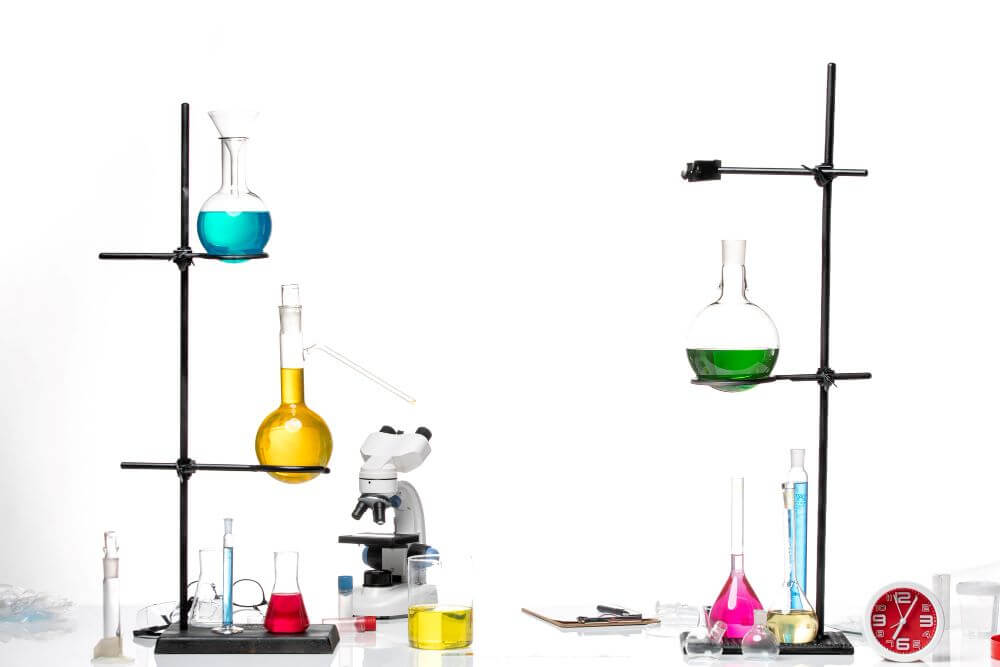A rotary evaporator is a piece of equipment widely used in many industries, particularly in chemical laboratories and research. These instruments are essential for removing solvents quickly, making them crucial tools in chemical compound processing. Understanding how rotary evaporators work and their importance can help explain their popularity.
Working of Rotary Evaporators
Although the working principle of the rotary evaporators is simple, it is highly effective. This method uses heat, reduced pressure, and gentle rotation to separate solvents from target compounds. The process begins by heating a solution in a flask and rotating it. The flask is placed on a spinning mechanism, causing the liquid inside to form a thin layer on the flask’s walls. This increases the surface area for evaporation. The reduced pressure lowers the boiling point of the solvent, allowing it to evaporate quickly at a lower temperature.
Improving the Efficiency of Solvent Recovery
One of the key aspects of laboratory processes is solvent recovery, and rotary evaporators play a significant role in this. These devices lower the boiling temperature of solvents, which makes the recovery process faster and more energy-efficient. Lower temperatures also reduce the potential for decomposition, which is especially useful when working with heat-sensitive compounds. Additionally, the reduced pressure environment allows even high-boiling solvents to be recovered without excessive heating.
Industry Applications
Rotary evaporators are used in a variety of industries due to their versatility. In pharmaceuticals, they are used to concentrate active ingredients and remove solvents from drug formulations. This process is essential for ensuring the purity and effectiveness of medicines, ultimately ensuring patient safety. In the food and beverage industry, rotary evaporators are used to extract and concentrate flavors. The reduced use of solvents allows producers to dehydrate flavors without altering the natural characteristics of the ingredients. This ability improves product quality, attracting consumers who seek an authentic taste experience.
Advantages Compared to Other Methods
There are several advantages of using a rotary evaporator compared to other solvent evaporation methods. Traditional distillation and other common techniques often require higher temperatures and extended processing times. Rotary evaporators, however, achieve similar results with significantly lower energy input and less thermal stress on the compounds. Additionally, the careful process of rotary evaporation makes it less likely for compounds to degrade. This is particularly important when working with delicate substances, as the goal is to preserve their integrity and potency during processing.
Technological Advancements
In recent decades, technological advancements have greatly enhanced the performance of rotary evaporators. Features such as automatic controls and programmable settings make these devices easier to operate and more precise. These innovations enable precise control over temperature, pressure, and rotation speed, resulting in a short residence time for the solvent removal process. Furthermore, newer models include safety features like automatic shut-off and solvent recovery monitoring. These improvements not only enhance safety during operation but also minimize human errors, which is crucial in laboratory environments along with other sectors.
Environmental Impact
One of the key benefits of a rotary evaporator is its environmentally friendly nature. These devices help reduce waste and conserve resources by facilitating efficient solvent recovery. By recovering solvents, laboratories can reuse them, reducing the need to purchase new solvents and minimizing the generation of chemical waste. Rotary evaporators are also designed to be energy-efficient, making them easily adaptable to sustainability objectives. Reduced energy consumption leads to lower carbon emissions, helping to mitigate climate change. Through the implementation of greener practices, rotary evaporators contribute to sustainability in laboratory operations.
Conclusion
Rotary evaporators are essential instruments for solvent removal. They are preferred in many industries due to their efficiency, versatility, and environmental benefits. By understanding the function and advantages of these devices, stakeholders can fully leverage their potential, ensuring the best outcomes in their applications. As technology continues to evolve, rotary evaporators will likely advance further, helping them remain indispensable tools in laboratories and industrial settings.




